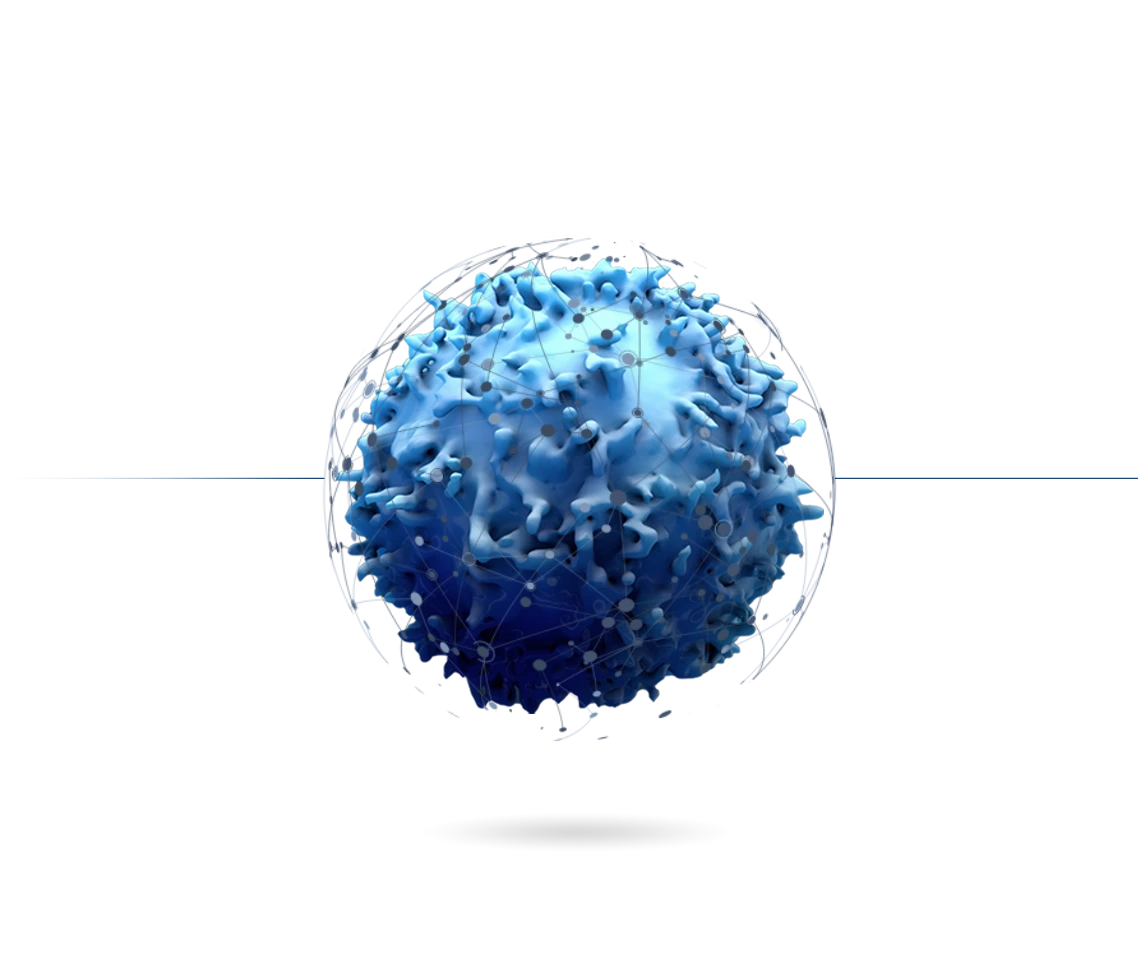| Autologous Program | Target(s) | Indication(s) | Discovery | IND-enabling | Phase 1 | Phase 2 | Phase 3 | Commercial rights |
|---|---|---|---|---|---|---|---|---|
| Firi-cel (CAR T) | CD22 | R/R LBCL - post CD19 CAR T |  | |||||
| Firi-cel (CAR T) | CD22 | LBCL - CAR T naïve(1) |  | |||||
| Firi-cel (CAR T) | CD22 | Pediatric B-ALL |  | |||||
| CRG-023 (tri-specific, tri-cistronic CAR T) | CD19 CD20 CD22 |
B-cell malignancies |  | |||||
(1) Based on data from the Phase 1 clinical trial conducted by Stanford and our ongoing Phase 2 clinical trial in R/R LBCL – post CD19 CAR T, we are in discussions with the FDA for the initiation of a Phase 2 program in LBCL – CAR T naïve without completing earlier clinical trials in LBCL – CAR T naïve patients.
B-cells are an important part of the human immune system that make antibodies to fight infections. Lymphoma originating from B cells are called B-cell lymphomas. Large B-cell lymphoma (LBCL) is the most common aggressive lymphoid malignancy in the United States and Europe, accounting for approximately 30 to 40% of all non-Hodgkin lymphomas (NHL), a disease with over 80,000 new diagnoses a year. Many patients (approximately 30 to 50%) do not respond to or relapse after initial treatments, and then become eligible for CAR T-cell therapy targeting CD19. CD19 CAR T-cell therapies can induce long-term remission in some patients, however, 60% of patients experience disease progression within a year, primarily due to diminished or absent surface CD19 expression. There is currently no broadly recognized standard of care for patients with R/R LBCL who do not respond to or relapse following treatment with CD19 CAR T-cell therapies.
For patients with LBCL whose disease has relapsed or is refractory (R/R) to CD19 CAR T-cell therapies, outcomes are poor. The prognosis for this patient population is poor with a median OS of less than six months. Targeting of alternative antigens, such as CD22, represents an important therapeutic strategy for patients who relapse after CD19 CAR T-cell therapies, including those with CD19 loss or downregulation.
CD22 is expressed on the majority of B-cell lymphomas. CD22 CAR T-cell therapy is a novel therapeutic option for patients with R/R LBCL after CD19 CAR T-cell therapy.
Firi-cel (CRG-022) is our autologous CAR T-cell product candidate that targets CD22, a B-cell specific antigen that has been reported to be expressed in at least 80% of diffuse large B-cell lymphoma (DLBCL) patients. Importantly, CD22 expression is usually retained following loss of CD19 antigen expression in patients who become resistant to CD19 CAR T-cell therapy. Our initial focus is on developing firi-cel for the treatment of patients whose disease is R/R to CD19 CAR T-cell therapies.
Based on the results from the Phase 1 clinical trial being conducted by Stanford, we believe that firi-cel has the potential to deliver durable anti-tumor responses in patients with LBCL whose disease is R/R to CD19 CAR T-cell therapy. Firi-cel is currently being evaluated in a potentially pivotal multi-center Phase 2 clinical trial FIRCE-1 (NCT05972720) of autologous CD22 CAR T-cells in patients with LBCL that is R/R to CD19 CAR T-cell therapy.
Phase 1 (NCT04088890) results demonstrate the safety and antitumor activity of CAR T-cell therapy targeting CD22 in adult patients with LBCL whose disease is R/R to CD19 CAR T-cell therapy. CARGO also plans to study firi-cel in pediatric B-cell Acute Lymphoblastic Leukemia (B-ALL).

